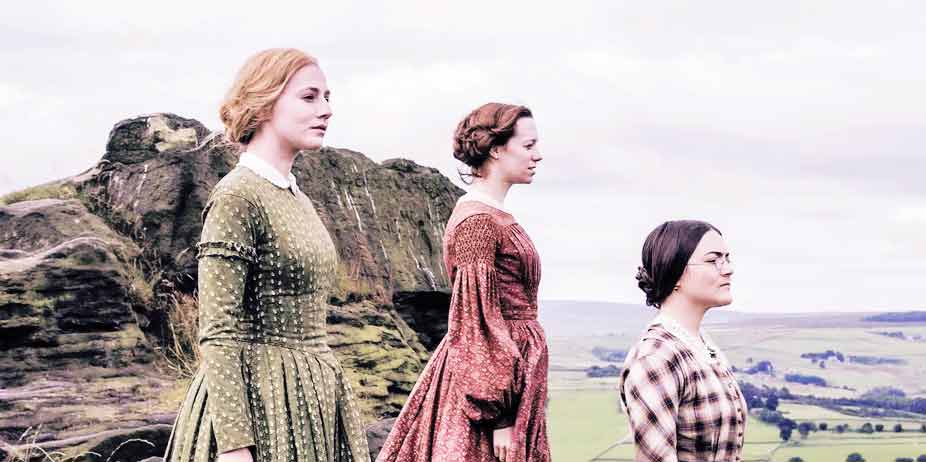 To
Walk Invisible (2017)
To
Walk Invisible (2017)
The Brontë sisters are known as literary geniuses of their time, writing and publishing novels that shifted the collective consciousness toward darker, more realistic fiction. This two hour film focuses on an important time in their lives.
Everything revolves around Branwell (Adam Nagaitis) in the Brontë family household; once an imaginative, excitable brother leading the charge in daring fantasy adventures set in their fictional world, he's now a careless, reckless alcoholic debtor on the way to breaking his father's (Jonathan Pryce's) heart. His sisters have mixed feelings. Charlotte (Finn Atkins) has tried to forsake her literary skills in order to "grow up," and become more responsible, while secretly harboring resentment that she cannot do what men do, without facing public judgment (is not a woman's intellect equal to a man's?). Emily (Chloe Pirrie) continues to write poetry, without desiring to share it with anyone, while tending to the household. And Anne (Charlie Murphy) abandons her former post, horrified at her brother's affair with another man's wife.
Soon, Anne reasons, they must find means to support themselves... and then Charlotte gets the idea that they should publish a book of poetry together. Little do they know how much it will shape their world, as they struggle and produce their most famous individual works, under male pen names, while trying to deal with their brother's diminishing health and sense of personal responsibility.
Often meticulous in its sensory accuracy (the costumes are marvelous, and the house was rebuilt according to exact room measurements), To Walk Invisible isn't always true to the nature of the Brontës but does shed light into the family situation, and the remarkable women who made such tremendous impact on society through their novels (for the time, considered gritty and explorative of intellectual nuances and beliefs). The acting is quite good, although I felt at times frustrated to spend so much time with Branwell (considerably less interesting than his sisters, as he declines) and wanted more emphasis on the inspiration for their works, and the writing process. What it does well is establish the close bond between the sisters, as well as the conflicts in their personalities. The modern foul language and weird, unnecessary sexual content detracted from the classiness of the production for me, but it certainly made me want to read the Brontë novels I haven't read yet.
Sexual Content:
One sex scene in a dream (a man walks through a laughing
crowd to discover they're watching two people having clothed sex).
Language:
Three f-words, one use of tw*t.
Violence:
A man spits up blood, across his sister's face.
